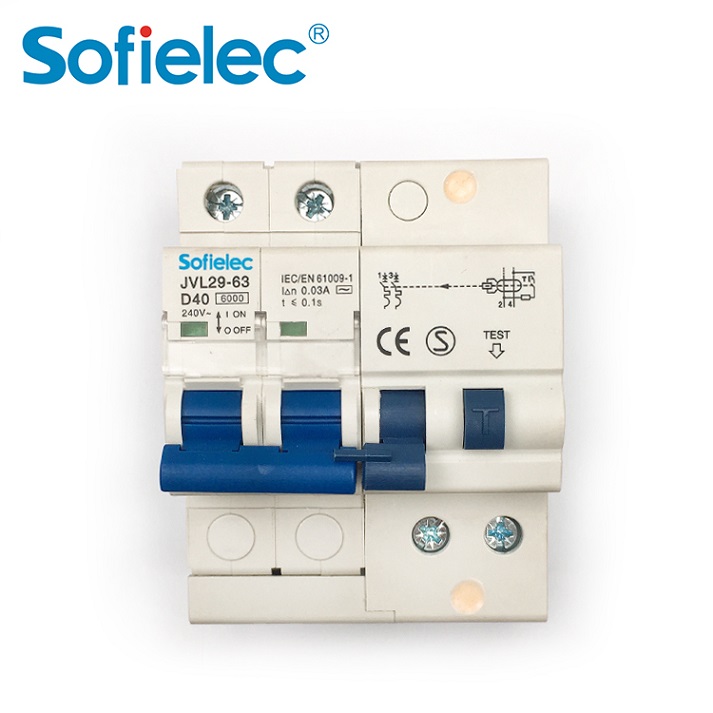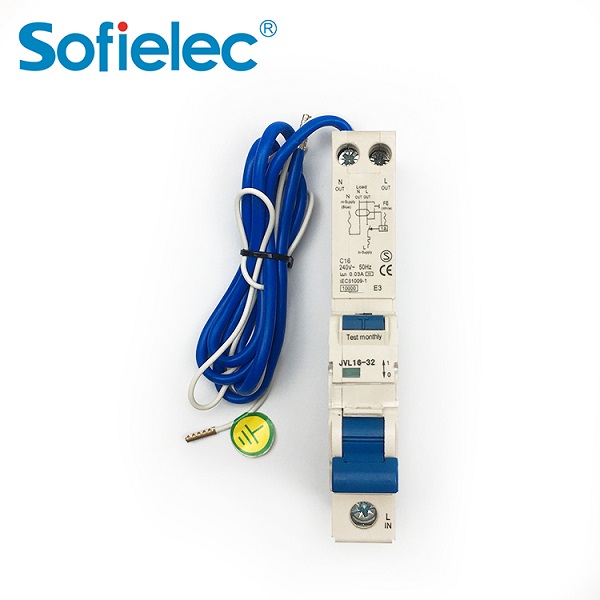What is difference between RCD and RCBO?
RCD (Residual Current Device) and RCBO (Residual Current Circuit Breaker with Overcurrent Protection) are both electrical devices used for electrical safety and protection, but they have some key differences:
- Function:
-
RCD: An RCD is a device that is designed to quickly detect and respond to small leakage currents, known as residual currents, which may occur when there is an electrical fault or when a person comes into contact with a live conductor. Its primary function is to provide protection against electric shock by rapidly disconnecting the power supply when it detects a fault.
-
RCBO: An RCBO combines the functions of both an RCD and a circuit breaker. It provides protection against both electric shock and overcurrents. In addition to detecting and responding to residual currents, an RCBO can also trip in the event of an overload or short circuit, providing protection against excessive current flow.
- Tripping Sensitivity:
-
RCD: An RCD is typically more sensitive to residual currents and can trip at lower levels, usually in the range of 10-30 milliamperes (mA). This high sensitivity allows for faster disconnection in the presence of even small leakage currents, providing enhanced protection against electric shock.
-
RCBO: An RCBO can also provide residual current protection but is generally less sensitive compared to a standalone RCD. The tripping sensitivity of an RCBO can be adjusted and may be slightly higher, typically in the range of 30-300 mA, depending on the specific model and application.
- Installation:
-
RCD: An RCD is installed on the main distribution board or at the point of origin of an electrical installation. It is intended to provide protection for multiple circuits or a group of circuits.
-
RCBO: An RCBO is a compact device that combines the functions of a residual current device and a circuit breaker in a single unit. It is typically installed at the distribution board or in individual circuits to provide protection for specific circuits or loads.
- Flexibility:
-
RCD: An RCD provides protection against electric shock but does not offer overcurrent protection. It is designed to detect and respond to residual currents only.
-
RCBO: An RCBO offers both residual current protection and overcurrent protection. It can detect and respond to both residual currents and excessive current flow due to overloads or short circuits.


Whereas an RCD is designed solely to protect against earth leakage and an MCB protects only against over-current, an RCBO protects against both types of fault.

RCCB and RCB0 are small leakage circuit breakers, RCCB refers to a residual current operated protector without overcurrent protection, RCB0 electromagnetic residual current operated circuit breaker MCB miniature circuit breaker RCD is residual leakage operated protector. RCCB: leakage switch, RCD: leakage protection device (such as leakage accessories of iC65), including leakage switch and leakage protection circuit breaker. RCBO: This is a residual current circuit breaker, a miniature circuit breaker.



